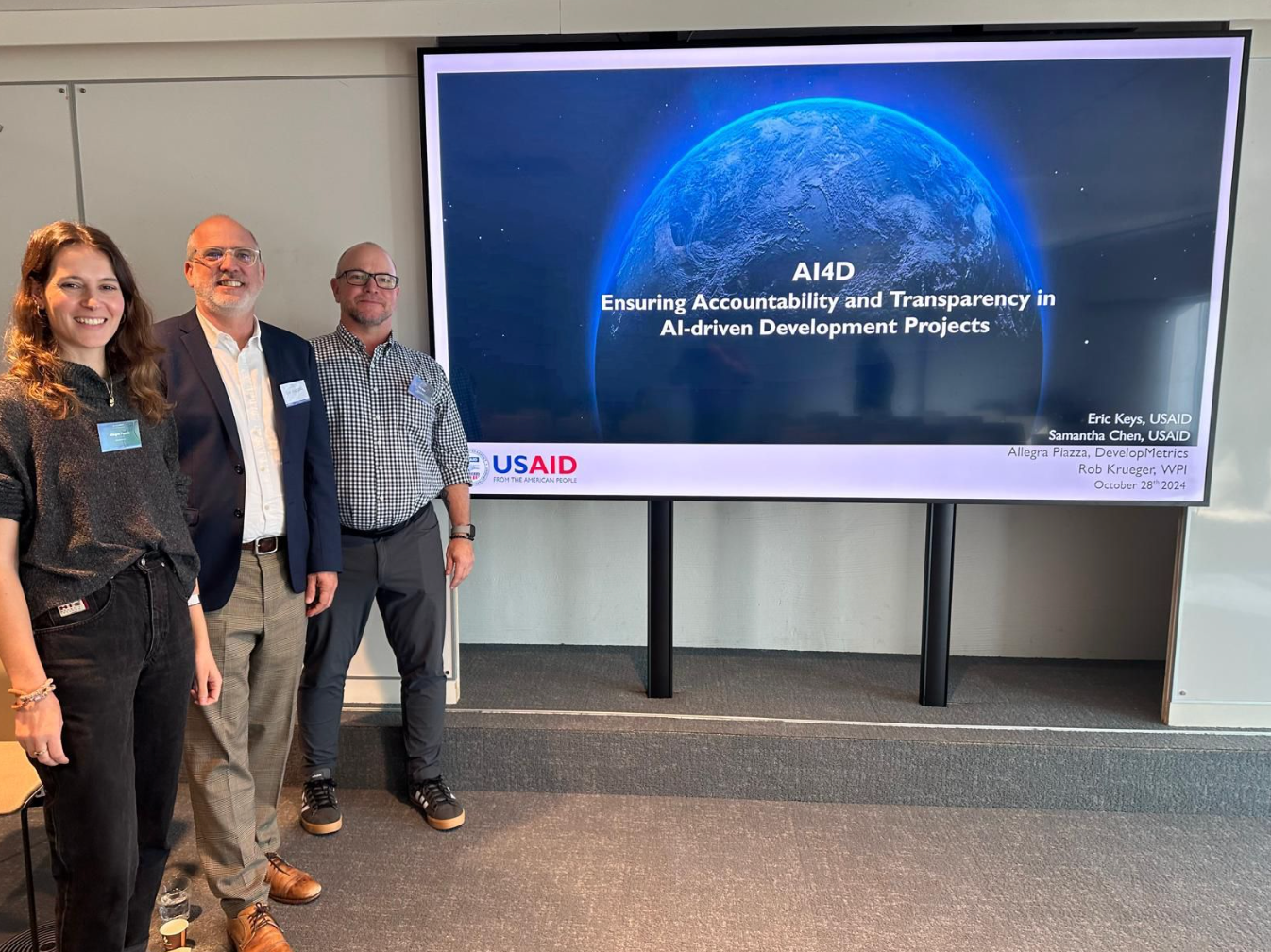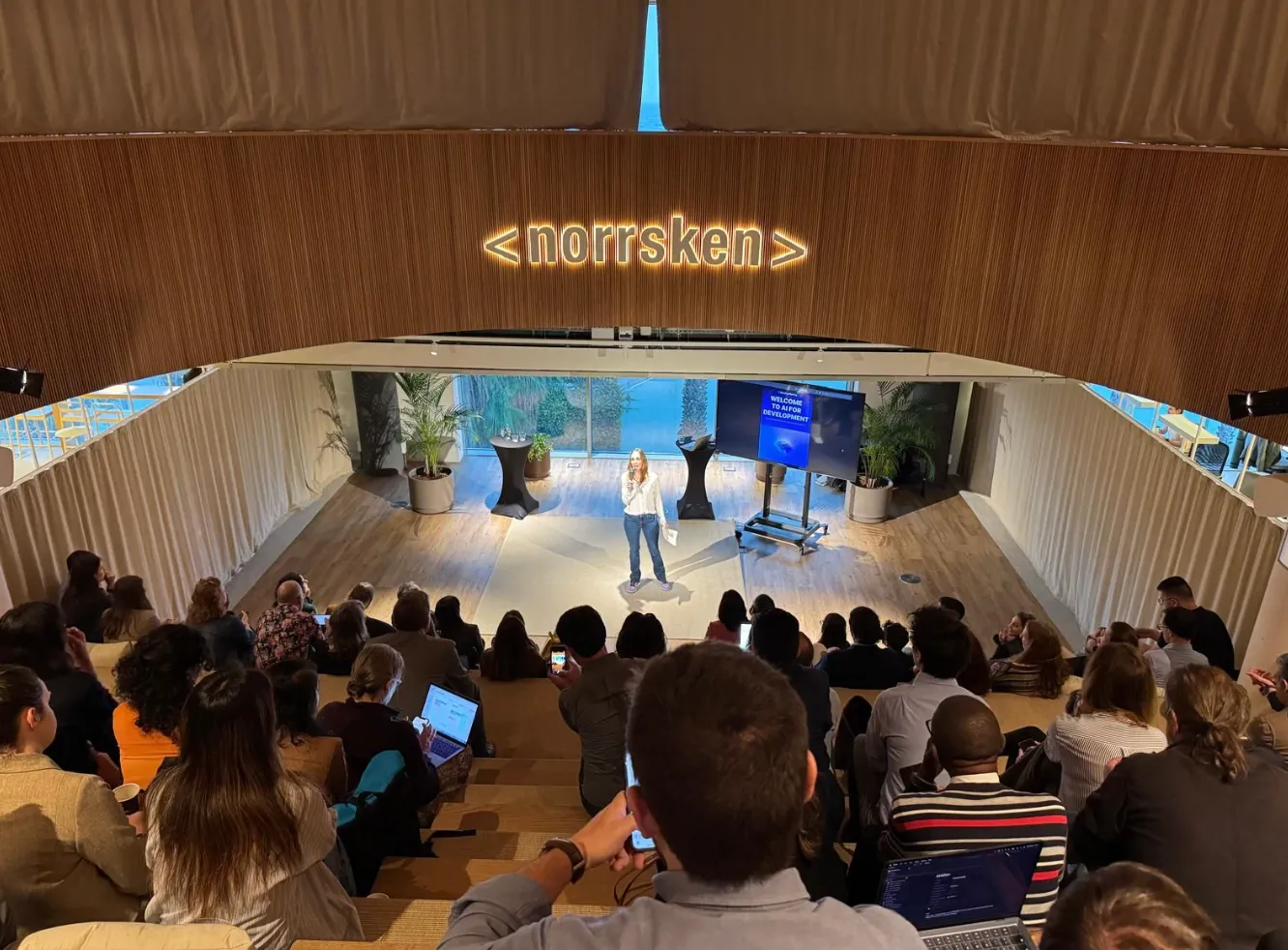We hosted The AI4Development Summit 2024 in Barcelona, which brought together global leaders, innovators, and changemakers to explore the transformative potential of artificial intelligence in international development. This year’s summit highlighted the power of AI to bridge societal gaps, enhance decision-making, and foster equitable social impact.
From thought-provoking sessions to actionable insights, here’s a recap of the key discussions that are shaping the future of AI in development.
Exploring Cognitive Models in AI
The summit opened with a fascinating keynote by Javier Ideami, who delved into “world models” and the subconscious nature of human decision-making—where a staggering 99.74% of choices happen unconsciously. Drawing parallels to AI’s automated “fast thinking,” Ideami challenged attendees to reflect on how AI could shape human cognition and societal norms.
Prioritizing Responsible AI & Inclusivity
Emily Springer, PhD, emphasized the need for Responsible AI that is participatory and inclusive, advocating for a feminist lens in AI design and implementation. Similarly, Nasim Motalebi, PhD, from the World Food Programme, urged the audience to shift the conversation from the “digital divide” to addressing digital inequality, focusing on structural changes needed for true inclusivity.

Addressing Power Imbalances in Aid
Wayan Vota tackled the complex dynamics of power and language in humanitarian contexts, introducing InkubaLM, an AI model for low-resource African languages. This innovation demonstrated AI’s potential to bridge communication gaps between aid workers and local communities, ensuring accessibility and equity in crisis response.
AI & Gender Equity in Agriculture
Eliot Jones-Garcia (CGIAR) and Dr. Thomas Isbell (GIZ) explored frameworks for Responsible AI, sharing practical tools to promote gender equity in agricultural development. Their session highlighted the importance of ethical AI practices in addressing global challenges.
Enhancing Accountability & Transparency
Eric Keys, PhD, from USAID, showcased how AI-powered tools are transforming development project accountability. By analyzing large datasets, these tools enhance transparency, enabling smarter, data-driven decision-making in international development programs.

Biometrics for Ethical Vaccine Delivery
Toby Norman of Simprints presented the ethical use of biometrics for vaccine delivery in underserved regions. His session emphasized the need to balance technological potential with privacy and consent, underscoring the role of responsible digital ID systems in healthcare access.
AI in Crisis Response
Thomas Byrnes, from the Norwegian Refugee Council, illustrated AI’s impact in humanitarian aid, particularly its efficiency during the Turkey-Syria earthquake response.
His session sparked important discussions on the ethical considerations of using AI in crisis settings.
Transforming Education with AI
María José Ogando Portela introduced the Cross-Domain Pedagogical Knowledge (CDPK) benchmark, which assesses the potential of large language models (LLMs) to enhance education in low- and middle-income countries. This innovation promises to make education more accessible and impactful worldwide.
Global South Inclusion in AI Governance
Suzy Madigan from CARE International UK led an interactive workshop on the inclusion of voices from the Global South in AI governance. She emphasized that a diverse range of perspectives is critical to ensuring equitable and sustainable development outcomes.
Data-Driven Learning & Impact Measurement
DT Global demonstrated how AI-powered evidence mapping can revolutionize organizational learning and strategy. By transforming raw data into actionable insights, these tools help development organizations drive greater impact.
A Purposeful AI Future
The AI4Development Summit 2024 underscored that AI isn’t just about technological advancements—it’s about making a real-world impact. From enhancing humanitarian aid to advancing gender equity and inclusivity, the discussions highlighted how AI must serve society responsibly and equitably.
We’re proud to carry forward these insights and collaborate with partners worldwide to shape a future where AI works for everyone. Let’s continue building a world where innovation meets inclusion.

